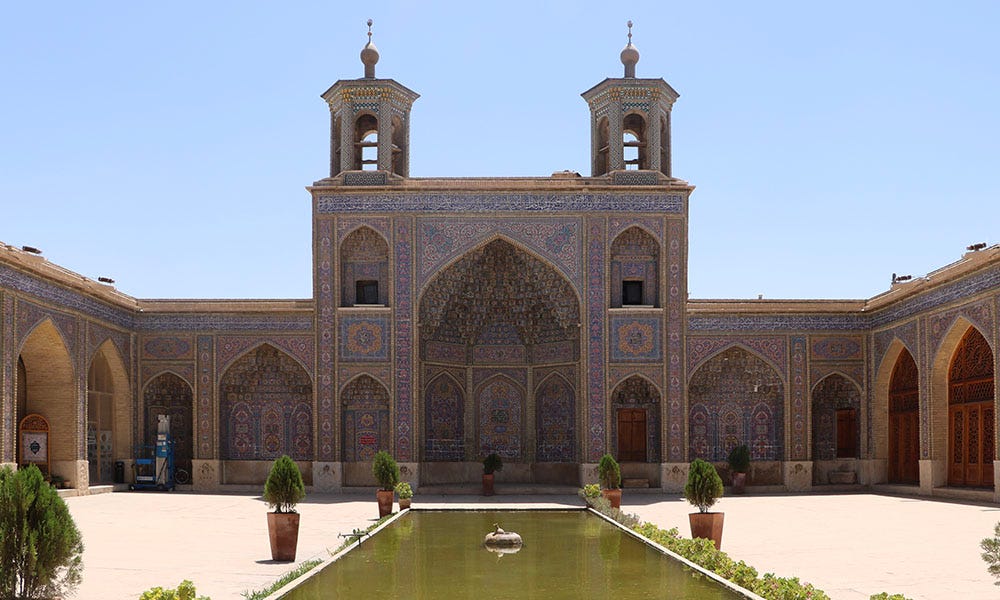After a brief flurry of attention to Iranian women burning their hijabs in protest of state violence against women, the world has once again returned to ignoring Iran. Given that Iran has openly stated that it wishes to destroy the West, and is actively developing nuclear weapons, this blind spot seems ill-advised.
On a personal note, I went to college with a few Iranian kids (BTW they prefer to be called Persian). Demographically, Iran has a large population of young, wealthy, well-educated people. They have been brought up on propaganda telling them that America and Israel are the Great Satan, and they're tired of it. They vacation in places like Dubai or in Europe, and they are well aware that there's a big world that isn't run by old men in black turbans.
But, in order to topple a regime, you need either firepower (generally supplied by foreigners), or you need the military on your side. In the case of Iran, a coup is more likely than a foreign intervention (if the CIA could destabilize Iran, they would have done it by now), but with badly-backfiring Western sanctions pushing Russia and China closer to Iran, this is probably not the best time.
A recent article from the Council on Foreign Relations, entitled Waiting for Thermidor: America’s Foreign Policy Towards Iran included this insightful line: “The historically curious observer might also see a disconnect between Iran’s internal weaknesses and the determination of numerous administrations not to exploit them.”
Given the USA's historical, aggressive actions for/against regime change in Latin America and other parts of the Middle East, it is a little curious that Iran has been left largely to its own devices. After decades of sanctions have accomplished close to nothing, and with Iran's nuclear program seemingly only delayed by Israeli espionage, one wonders why American foreign policy hawks haven't taken a stronger approach. Certainly in comparison to Saddam Hussein’s Iraq, Iran is a far greater threat to national security, as well as to our regional allies - not just Israel (which Iran has repeatedly sworn to wipe off the map), but also Jordan, arguably the most liberal of the Arab nations.
According to a recent article about Jordan:
The country faces four threats from Iran: the infiltration of terrorist cells; intelligence cooperation between Iranian militias; activation of dormant terror cells in Jordan; and the trend of “lone wolves,” followers of the Iranian Shi’ite revolution, who might get inspired to act on their own. This includes mysterious cyberattacks on Jordan, which have been attributed to “countries and organizations.”
Jordan is also struggling with drug trafficking. Iran’s goal is to flood the kingdom with weapons and drugs that will reach criminal gangs and eventually destabilize the government.
What is Jordan doing to take the fight to Iran? Not much of anything, aside from whatever clandestine support its intelligence agencies are providing to the Israeli Mossad.
Returning to the idea of regime change in Iran, it's hard to imagine that unarmed, disorganized street protests - no matter how large - will topple a government that has no qualms about using extreme violence to quash dissent. If, as the CFR’s article suggests, change is coming, I believe it will have to be in the form of a military coup. “Thermidor,” incidentally, is the technical term for a moderate regime that ousts a more extreme one. The catch is that these transitional Thermidor administrations tend to be dictatorships. If the Iranian theocracy is replaced by a strongman dictatorship, it might be better for the West, but still a long way from good.
In the meantime, for America and its allies to continue pointedly looking the other way (towards Russia) as Iran does whatever it wants, may wind up being a very poor choice indeed.




Sorry to disagree with you on this. Iran's not the aggressor in this situation.